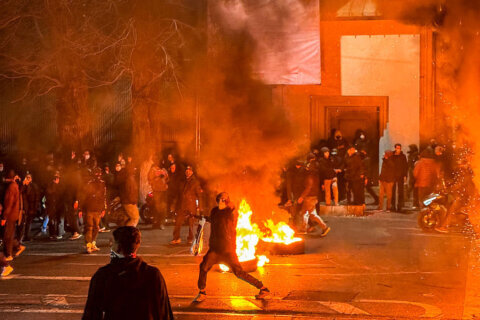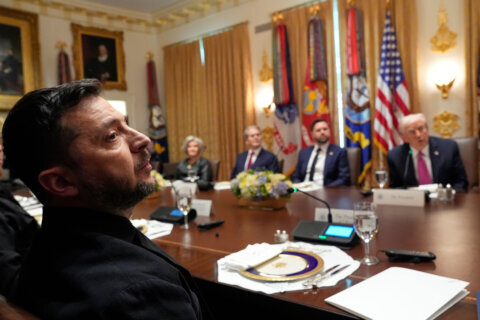WASHINGTON — Three days before Christmas, National Intelligence Director James Clapper said there’s a growing terror threat facing the United States, but wants to reassure the public as the holiday approaches.
“I hope everyone will still enjoy the holidays,” Clapper told WTOP. “A lot of people will be maintaining the vigil, making sure the country is still safe and secure.”
Still, as he sat at a conference room table in his office (almost 12 hours after his day started), Clapper said unidentified threats worry him the most.
Not the Islamic State in the Levant (ISIL).
Not Russia’s aggressive behavior.
Nor the many items that appear on his secure iPad, where he views the “Presidential Daily Briefing.”
“The unknown unknown” is what concerns Clapper, like undiscovered terror plots: “For all of us in the intelligence business, you worry about what you don’t know at all.”
Clapper said the U.S. has a robust intelligence community working around the clock.
The terror attack in San Bernardino, California, which left 14 dead, and the Paris attacks, which killed 130 people, exposed a key weakness in the intelligence community.
Terrorists have learned to avoid detection.
“If we are aware — even anecdotally or partially — of some plot or some threat, we can work on that,” Clapper said. “We can attempt to gain more insight — learn more about it, collect more [human intelligence], collect more [signals intelligence], if we have something to start with.”
Recent global attacks, aided by terrorists’ use of encrypted social media tools, have denied intelligence officials that starting point.
As Clapper prepares for the next round of worldwide threat briefings before Congress in January, he said terrorism “has grown in its sophistication and savagery. The lengths to which they will go to be destructive and to grab attention has multiplied over the years.”
Clapper believes periodic terror attacks are no longer the standard model. He said terror groups like ISIL are conducting long-term campaigns, based in part on their knowledge of how to avoid detection that make defending against terrorism more difficult than it has ever been.
Clapper’s intelligence career, spanning more than 50 years, began in the 1960s at the height of U.S./Russian tension. But what about the diverse array of threats facing the U.S. now?
“Sometimes, it makes me long for the halcyon days of the Cold War.”








